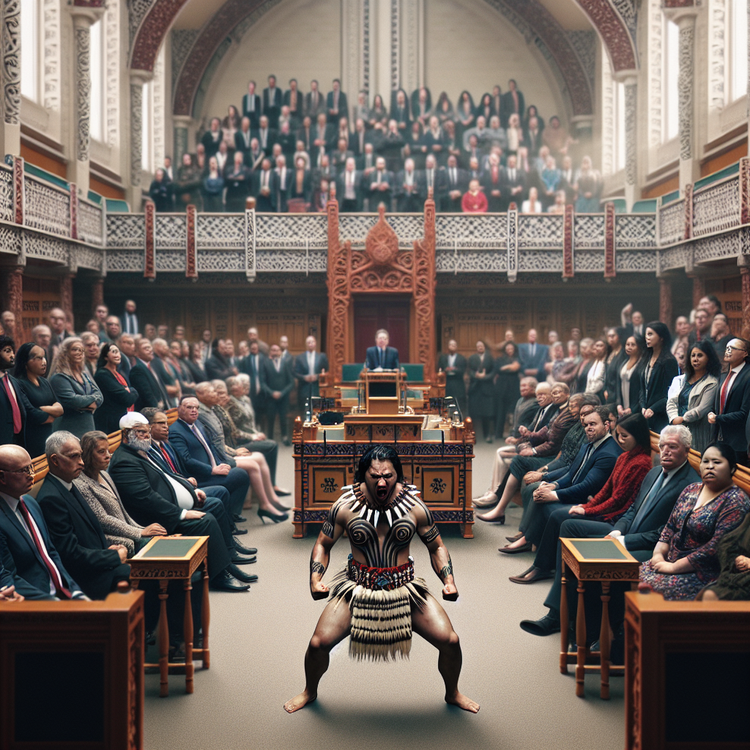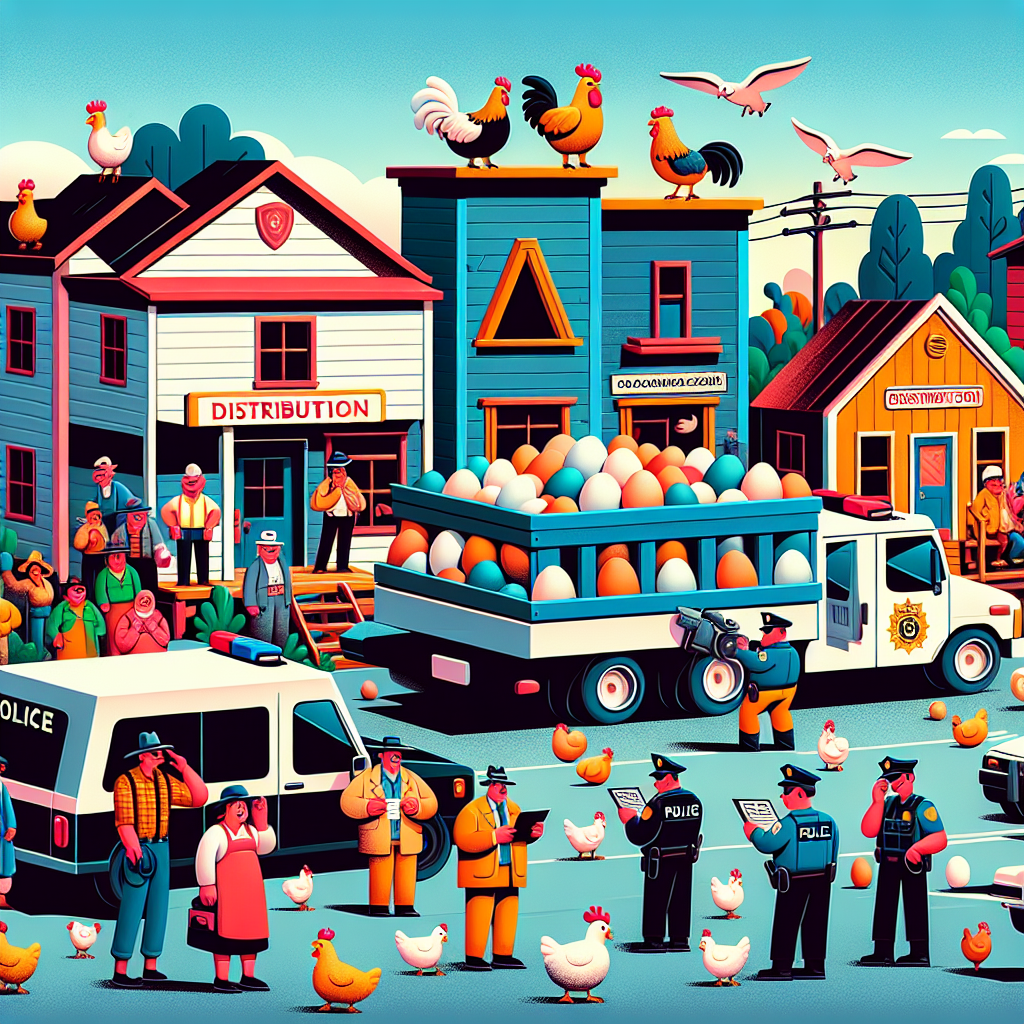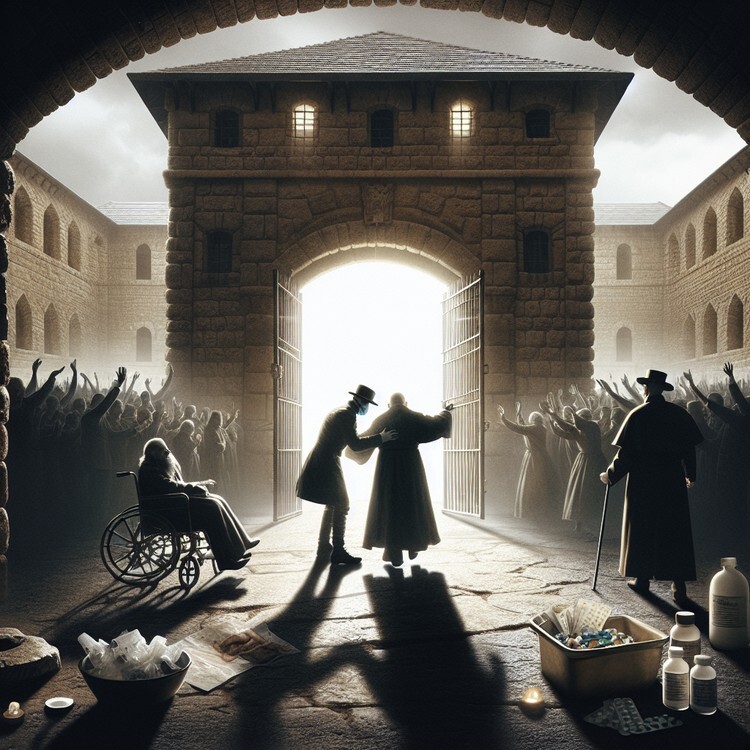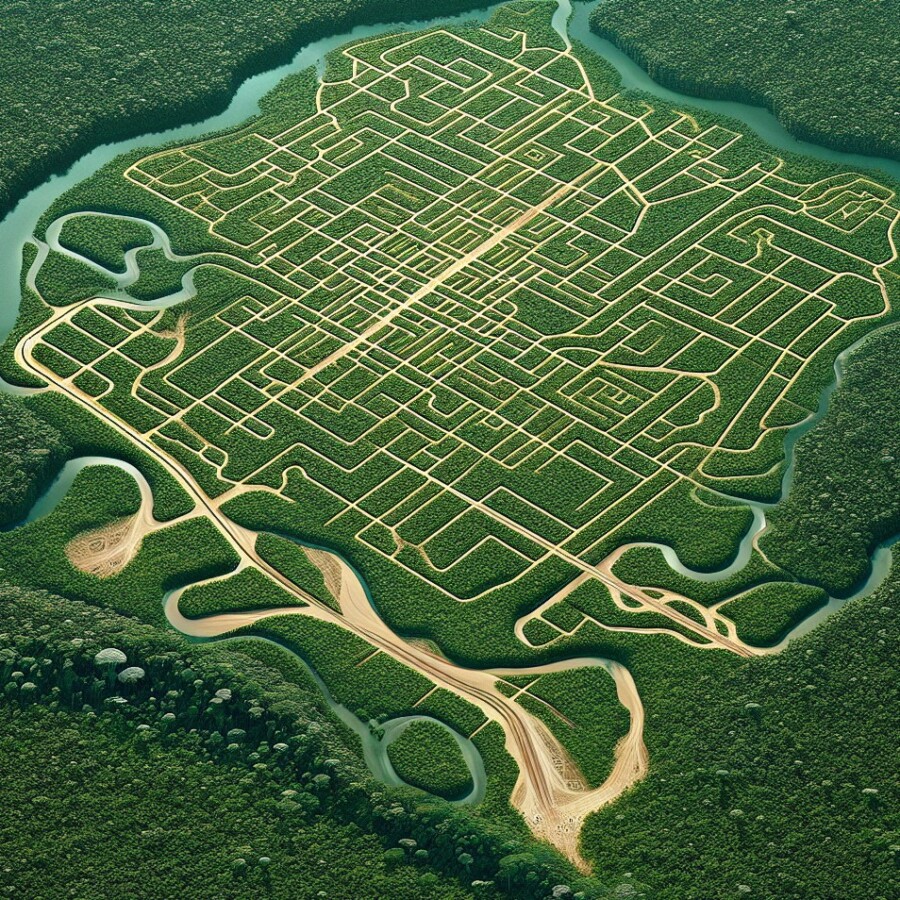A man from New Zealand did a special dance before he started his new job. The dance is from the Maori people, and it shows they are strong and together. The man, Rawiri Waititi, cares a lot about Maori people and their rights. He said important words to his grandkids and to a special paper that is important for New Zealand. Some people are talking about changing rules, and he wants to make sure Maori people are treated fairly.
When Rawiri did the dance, it was a big deal. It showed he will work hard for Maori people. Now, many people are talking about how to include everyone’s culture in making rules for the country. Rawiri’s dance is a way to remember that the Maori way is important. It helps people think about how everyone should be respected and included.
Original news source: Watch: Maori MP performs haka before swearing oath to King (BBC)
Listen:
Slow
Normal
Fast
Vocabulary:
| 1 | dance | Moving your body to music |
| 2 | job | Something you do to make money |
| 3 | Maori | A group of people from New Zealand |
| 4 | rules | Things you have to follow |
| 5 | important | Something that is very special and means a lot |
| 6 | people | A group of humans |
| 7 | include | To make sure everyone is a part of something |
| 8 | culture | The way a group of people do things |
| 9 | respect | Treating someone nicely and being kind |
| 10 | country | A place where people live and have their own rules” |
Group or Classroom Activities
Warm-up Activities:
– Charades
Instructions: Divide the class into two teams. Give each team a set of cards with words related to the article (e.g. dance, Maori, rules, culture). One student from each team will act out the word without speaking, and their team members have to guess what it is. The team with the most correct guesses wins.
– Vocabulary Pictionary
Instructions: Divide the class into pairs. Give each pair a list of vocabulary words from the article. One student will choose a word and draw it, while the other student tries to guess what it is. After a certain amount of time, switch roles. The pair with the most correctly guessed words wins.
– Opinion Spectrum
Instructions: Write two statements related to the article on the board (e.g. “Including everyone’s culture in making rules is important” and “Rules should be made based on the majority culture”). Have the students stand on a line in the classroom, with one end representing “strongly agree” and the other end representing “strongly disagree”. Read one statement at a time and have students move to the point on the line that represents their opinion. Allow students to explain their reasoning if they want to.
– Headline Creation
Instructions: Divide the class into small groups. Give each group a blank piece of paper and ask them to create a catchy headline for the article. Encourage them to use vocabulary and concepts from the article. After a few minutes, have each group share their headline with the class and explain why they chose it.
– Two Truths and a Lie
Instructions: Have each student write down two true statements and one false statement about the article. Collect the papers and read them out loud, without revealing who wrote each one. The class has to guess which statement is the lie. This activity encourages comprehension of the article and creativity in coming up with false statements.
Comprehension Questions:
1. What did the man from New Zealand do before he started his new job?
2. Where does the dance come from?
3. Why did the man do the dance?
4. Why was the dance a big deal?
5. What are people talking about now?
6. Why is Rawiri’s dance important?
7. What does the dance help people think about?
Go to answers ⇩
Listen and Fill in the Gaps:
A man from New Zealand did a special dance before he started his new job. The dance is from the Maori (1)______, and it shows they are strong and together. The man, (2)______ Waititi, cares a lot about Maori people and their (3)______. He said important words to his grandkids and to a special paper that is important for New Zealand. Some people are talking about (4)______ rules, and he wants to make sure Maori people are treated fairly.
When Rawiri did the (5)______, it was a big deal. It showed he will work hard for Maori people. Now, many people are talking about how to (6)______ everyone’s culture in (7)______ rules for the country. Rawiri’s dance is a way to remember that the Maori way is important. It helps people (8)______ about how everyone should be respected and included.
Go to answers ⇩
Discussion Questions:
Students can ask a partner these questions, or discuss them as a group.
1. What is a special dance?
2. How do you think Rawiri felt when he did the dance?
3. Do you think it’s important to care about people’s rights? Why or why not?
4. How would you feel if someone changed the rules for your country?
5. Do you like dancing? Why or why not?
6. What do you think it means to be treated fairly?
7. How can we make sure everyone’s culture is included?
8. Do you think it’s important to remember different ways of doing things? Why or why not?
9. Have you ever done a special dance? What was it like?
10. How do you think it feels to be respected?
11. Do you think it’s important for everyone to be included? Why or why not?
12. Why do you think some people are talking about changing rules?
Individual Activities
Vocabulary Meanings:
Match each word to its meaning.
Words:
1. dance
2. job
3. Maori
4. rules
5. important
6. people
7. include
8. culture
9. respect
10. country
Meanings:
(A) Something that is very special and means a lot
(B) To make sure everyone is a part of something
(C) Something you do to make money
(D) A group of humans
(E) A group of people from New Zealand
(F) Things you have to follow
(G) Treating someone nicely and being kind
(H) The way a group of people do things
(I) Moving your body to music
(J) A place where people live and have their own rules
Go to answers ⇩
Multiple Choice Questions:
1. Where is the man from who did the special dance?
(a) Australia
(b) Canada
(c) New Zealand
(d) United States
2. What kind of dance did the man do?
(a) Ballet dance
(b) Maori dance
(c) Hip-hop dance
(d) Tap dance
3. What does the dance show about the Maori people?
(a) They are lazy and weak
(b) They are strong and together
(c) They are mean and selfish
(d) They are scared and alone
4. Who did the man say important words to?
(a) His friends and his dog
(b) His boss and his neighbors
(c) His teacher and his classmates
(d) His grandkids and a special paper
5. Why did the man do the dance?
(a) To show he will work hard for Maori people
(b) To show he is a good dancer
(c) To show he is better than everyone else
(d) To show he doesn’t like Maori people
6. What are some people talking about changing?
(a) Clothes
(b) Food
(c) Rules
(d) Toys
7. What does the man want to make sure?
(a) Maori people are treated badly
(b) Maori people are ignored
(c) Maori people are rich
(d) Maori people are treated fairly
8. What does the dance help people think about?
(a) How everyone should be respected and included
(b) How everyone should be ignored and left out
(c) How everyone should be mean and selfish
(d) How everyone should be scared and alone
Go to answers ⇩
True or False Questions:
1. A man from New Zealand did a special dance before starting his new job.
2. Rawiri’s dance was insignificant and showed that he will not work hard for Maori people.
3. The man, Rawiri Waititi, cares a lot about Maori people and their rights.
4. Few people are talking about excluding everyone’s culture in making rules for the country.
5. The dance is from the Maori people and shows that they are strong and together.
6. Some people are discussing maintaining rules, and he wants to ensure Maori people are treated unfairly.
7. He said important words to his grandkids and a special paper that is important for New Zealand.
8. Rawiri’s dance is a way to forget that the Maori way is important and that not everyone should be respected and included.
Go to answers ⇩
Write a Summary:
Write a summary of this news article in two sentences.
Check your writing now with the best free AI for English writing!
Writing Questions:
Answer the following questions. Write as much as you can for each answer.
Check your answers with our free English writing assistant!
1. What did the man from New Zealand do before he started his new job?
2. Where is the dance from that the man did?
3. Why did the man do the dance?
4. What are some people talking about changing?
5. Why is the man’s dance important?
Answers
Comprehension Question Answers:
1. What did the man from New Zealand do before he started his new job?
He did a special dance.
2. Where does the dance come from?
The dance comes from the Maori people.
3. Why did the man do the dance?
He did the dance to show that he cares about Maori people and their rights.
4. Why was the dance a big deal?
The dance was a big deal because it showed that he will work hard for Maori people.
5. What are people talking about now?
People are talking about how to include everyone’s culture in making rules for the country.
6. Why is Rawiri’s dance important?
Rawiri’s dance is important because it helps people think about how everyone should be respected and included.
7. What does the dance help people think about?
The dance helps people think about how everyone should be respected and included.
Go back to questions ⇧
Listen and Fill in the Gaps Answers:
(1) people
(2) Rawiri
(3) rights
(4) changing
(5) dance
(6) include
(7) making
(8) think
Go back to questions ⇧
Vocabulary Meanings Answers:
1. dance
Answer: (I) Moving your body to music
2. job
Answer: (C) Something you do to make money
3. Maori
Answer: (E) A group of people from New Zealand
4. rules
Answer: (F) Things you have to follow
5. important
Answer: (A) Something that is very special and means a lot
6. people
Answer: (D) A group of humans
7. include
Answer: (B) To make sure everyone is a part of something
8. culture
Answer: (H) The way a group of people do things
9. respect
Answer: (G) Treating someone nicely and being kind
10. country
Answer: (J) A place where people live and have their own rules
Go back to questions ⇧
Multiple Choice Answers:
1. Where is the man from who did the special dance?
Answer: (c) New Zealand
2. What kind of dance did the man do?
Answer: (b) Maori dance
3. What does the dance show about the Maori people?
Answer: (b) They are strong and together
4. Who did the man say important words to?
Answer: (d) His grandkids and a special paper
5. Why did the man do the dance?
Answer: (a) To show he will work hard for Maori people
6. What are some people talking about changing?
Answer: (c) Rules
7. What does the man want to make sure?
Answer: (d) Maori people are treated fairly
8. What does the dance help people think about?
Answer: (a) How everyone should be respected and included
Go back to questions ⇧
True or False Answers:
1. A man from New Zealand did a special dance before starting his new job. (Answer: True)
2. Rawiri’s dance was insignificant and showed that he will not work hard for Maori people. (Answer: False)
3. The man, Rawiri Waititi, cares a lot about Maori people and their rights. (Answer: True)
4. Few people are talking about excluding everyone’s culture in making rules for the country. (Answer: False)
5. The dance is from the Maori people and shows that they are strong and together. (Answer: True)
6. Some people are discussing maintaining rules, and he wants to ensure Maori people are treated unfairly. (Answer: False)
7. He said important words to his grandkids and a special paper that is important for New Zealand. (Answer: True)
8. Rawiri’s dance is a way to forget that the Maori way is important and that not everyone should be respected and included. (Answer: False)
Go back to questions ⇧













